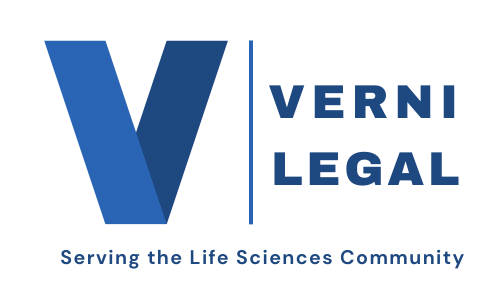
It’s about knowing the destination and how to navigate there.
Representative Experience:
Jump To:
Patent Portfolio Preparation, Prosecution, Strategy and Management:
Small Molecules:
Represented Pfizer in the preparation and prosecution of the patent estate to protect Xeljanz® (tafacitinib), a JAK3 inhibitor indicated for severe rheumatoid arthritis and other inflammatory conditions
Represented ARIAD Pharmaceuticals (now Takeda) in the preparation and prosecution of a patent estate to protect Iclusig® (ponatinib), a tyrosine kinase inhibitor, indicated for certain leukemias
Represented Genzyme (now sanofi) in the preparation and prosecution of patent estates to protect:
Clolar® (clofarabine), a nucleoside metabolic inhibitor, indicated for pediatric acute lymphoblastic leukemia
Mozobil® (plerixafor), a CXCR4 inhibitor, indicated for mobilization of hematopoietic stem cells for autologous transplantation
Fludara® (fludarabine), an i.v. nucleotide metabolic inhibitor, indicated for B-cell chronic lymphocytic leukemia
Oforta® (fludarabine), an oral nucleotide metabolic inhibitor, indicated for B-cell chronic lymphocytic leukemia
Antisense Oligonucleotides:
Represented Sarepta Therapeutics in the preparation and prosecution of a patent estate to protect:
Exondys 51® (eteplirsen), an exon skipping therapy, for the treatment of Duchenne muscular dystrophy in patients amenable to exon 51 skipping
Vyondys 53® (golodirsen), an exon skipping therapy, for the treatment of Duchenne muscular dystrophy in patients amenable to exon 53 skipping
Amondys 45® (eteplirsen), an exon skipping therapy, for the treatment of Duchenne muscular dystrophy in patients amenable to exon 45 skipping
Gene Therapies:
Represented Sarepta Therapeutics in the preparation and prosecution of a patent estate to protect:
Elevidys® (delandistrogene moxeparvovec-rokl), an AAV gene therapy, for the treatment of Duchenne muscular dystrophy
Strategic Transactions
Represented Vigil Neuroscience (now sanofi) in its $40M Securities Purchase Agreement with sanofi that included an exclusive right of first negotiation for an exclusive license, grant or transfer of rights concerning its TREM2 agonist program, including VG-3927, being developed for Alzheimer’s disease; sanofi acquired Vigil for $470M not including potential CVR payment
Represented Sarepta Therapeutics in
its exclusive license agreement with Nationwide Children’s Hospital for an investigational gene therapy candidate, calpain 3, to treat Limb-Girdle Muscular Dystrophy 2A (LGMD2A)
its Series A investment in AavantiBio, a gene therapy company, to join a syndicate totaling $107M
a license agreement with Hansa Biopharma, with payments totaling up to $407.5 million, pursuant to which Sarepta received an exclusive worldwide license to develop and commercialize imlifidase as a pre-treatment for Sarepta’s gene therapies
a $1.15B upfront collaboration and license agreement, which granted Roche exclusive rights to commercialize Sarepta’s investigational gene therapy for Duchenne muscular dystrophy outside the United States as well as options for certain other Sarepta DMD programs [LMG Life Sciences Impact Deal of the Year 2020]
a collaboration and license agreement with StrideBio Inc. to develop gene therapies for up to eight central nervous system (CNS) and neuromuscular targets
its acquisition of Myonexus Therapeutics for $165M to acquire five gene therapy candidates to treat distinct forms of Limb-Girdle Muscular Dystrophy
in its priority review voucher sale to an undisclosed buyer for an undisclosed amount
in the negotiation of an exclusive license agreement with Lysogene, a gene therapy company targeting the treatment of orphan diseases of the central nervous system, to develop outside of Europe LYS-SAF302, a gene therapy for the treatment of Mucopolysaccharidosis type IIIA (MPS IIIA)
in the negotiation of an exclusive option agreement to acquire Nationwide Children’s gene therapy candidate, neurotrophin 3 (NT-3), to treat Charcot-Marie-Tooth (CMT) neuropathies, including CMT type 1A
in a strategic investment and licensing transaction with Lacerta Therapeutics, in which Sarepta entered into a license and option agreement for up to three new CNS-targeted gene therapy programs, including exclusive rights to Lacerta’s gene therapy candidate for Pompe Disease and options to two additional candidates, and made an equity investment of $30M in Lacerta
in its research and collaboration agreement with Duke University that provided an option for an exclusive license to IP and CRISPR/Cas9 technology for Duchenne muscular dystrophy
in the negotiation of an exclusive license agreement and settlement agreement with BioMarin Pharmaceutical that provided global exclusive rights to BioMarin’s DMD patent estate for Exondys 51 and all future exon-skipping products in exchange for an upfront payment of $35M and a 5% royalty, subject to step downs, on net sales of exon skipping compounds 51, 45, and 53
in an exclusive license agreement with Nationwide Children’s Hospital for its Galgt2 gene therapy program for Duchenne muscular dystrophy
in a research agreement, option agreement and exclusive license agreement with Nationwide Children’s Hospital for its IND-stage microdystrophin gene therapy program for Duchenne muscular dystrophy, f/k/a/ SRP-9001 and approved as Elevidys®
in an exclusive license and collaboration agreement with Summit Therapeutics to acquire exclusive rights in Europe and other markets for ezutromid, a Phase 2 utrophin modulator for Duchenne muscular dystrophy
in a joint collaboration agreement with Catabasis to explore a combination of novel combination drug treatment approach for Duchenne muscular dystrophy
in a collaborative research agreement with Murdoch University to establish a Sarepta Translational Laboratory and provide exclusive rights to a variety of pre-specified research projects
Represented Sarepta Therapeutics, ARIAD Pharmaceuticals (now Takeda) and Genzyme (now sanofi) in connection with the negotiation of a number of sponsored research and license agreements with U.S. and international academic institutions
Represented Genzyme (now sanofi) in the acquisition from Bayer Schering Pharma of three commercial stage oncology franchises: Campath®, Fludara®, Leukine®
Corporate Financings
Represented Vigil Neuroscience (now sanofi) in:
its $75M PIPE
its Open Market Sales Agreement with Jefferies LLC and various sales of shares thereunder though its at-the-market (ATM) offering program
Represented Sarepta Therapeutics in:
its $500M underwritten public offering of shares of its common stock with an option to purchase an additional $75M in shares of its common stock
its agreement with Pharmakon Advisors, LP to provide up to $500M in a credit facility of two equal tranches
its $350M underwritten public offering of shares of its common stock with an option to purchase an additional $52.5M in shares of its common stock
its $500M underwritten public offering of shares of its common stock with an option to purchase an additional $75M in shares of its common stock
its $475M convertible senior unsecured note offering with an option to grant initial purchasers of the notes an additional $95M of the notes
its $325M underwritten public offering of shares of its common stock with an option to purchase an additional $75M in shares of its common stock
its $300M underwritten public offering of shares of its common stock with an option to purchase an additional 15% of shares of common stock offered in the public offering
its $127M underwritten public offering of shares of its common stock with an option to purchase an additional 15% of shares of common stock offered in the public offering
Represented ARIAD Pharmaceuticals (now Takeda) in its $300M underwritten public offering of shares of its common stock with an option to purchase an additional 15% of shares of common stock offered in the public offering
Patent Challenges and Defenses
Represented Sarepta Therapeutics in:
its defense of patent infringement asserted by Nippon Shinyaku Co. Ltd. concerning Sarepta’s Vyondys 53, its exon 53 skipping therapy for Duchenne muscular dystrophy (DMD), and its counter-claim for infringement against Nippon Shinyaku concerning Nippon Shinyaku’s competing exon 53 skipping product for DMD, Viltepso. A federal jury in the District of Delaware awarded Sarepta over $115M in infringement damages and determined that all Nippon Shinyaku patents asserted against Sarepta to be invalid and denied Nippon Shinyaku’s request for damages.
its Inter Partes Review challenge of Nippon Shinyaku’s exon 53 patents at the Patent Trial and Appeal Board (PTAB) of the USPTO. Following requests for Inter Partes Review, institution was obtained for all seven patents at issue and favorable opinions from the US Patent Trial and Appeal Board were issued that indicated the invalidity of the Nippon Shinyaku patents.
its defense of patent infringement asserted by Regenxbio Inc. and its licensor, the University of Pennsylvania, arising from Sarepta’s manufacture and use of technology relating to SRP-9001, later approved as Elevidys®. A judge in the District of Delaware agreed with arguments that the asserted patent is invalid as claiming ineligible subject matter and closed the case following summary judgment. Regenxbio and University of Pennsylvania have appealed to the U.S. Court of Appeals for the Federal Circuit.
its defense of patent infringement asserted by Wilson Wolf Manufacturing in the District of Delaware arising from Sarepta’s manufacture of SRP-9001, later approved as Elevidys®. Corporate resources were spared of this infringement claim by obtaining a stay of litigation pending other legal matters not involving Sarepta. The case has been successfully dismissed.
its three patent interferences against BioMarin Pharmaceutical Inc. and its licensor, University of Leiden, concerning exon 51 and exon 53 technology for Duchenne muscular dystrophy. Notwithstanding Sarepta and its licensor, University of Western Australia, being the junior party patentee and BioMarin being the senior party applicant, the PTAB determined that BioMarin was not entitled to claim the exon 51 and exon 53 subject matter at issue, thereby allowing Sarepta to maintain its patents while preventing a potential claim of infringement. A favorable settlement agreement was obtained in advance of an oral hearing at the U.S. Court of Appeals for the Federal Circuit.
its various patent oppositions at the European Patent Office and revocation proceedings at the United Kingdom High Court concerning exon skipping technology for Duchenne muscular dystrophy

